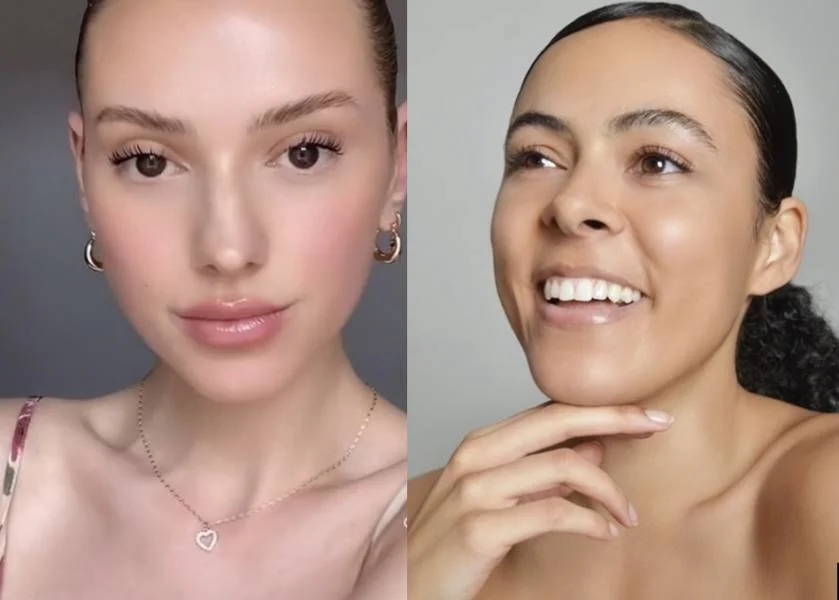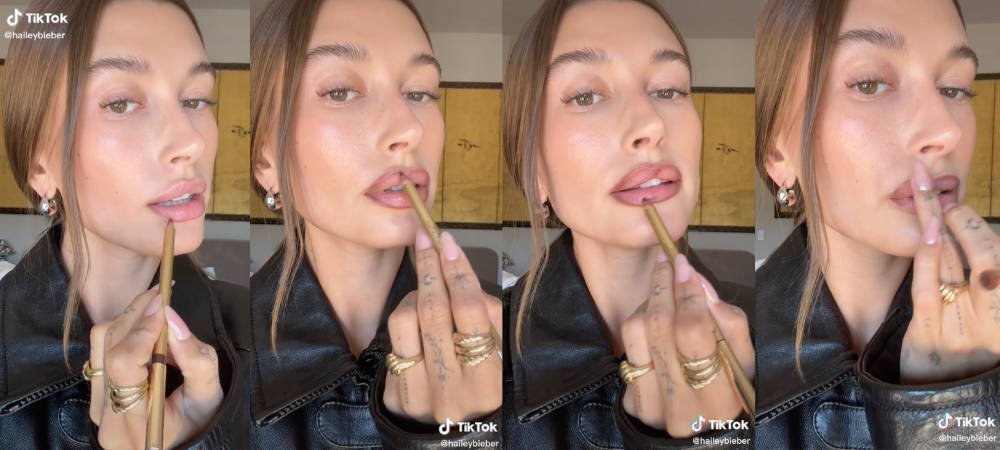Dirty Discourse: The "Clean Girl Aesthetic" was Co-oped from People of Color
*Article from Lexington Line’s Autumn/ Winter 2022 Issue, pages 78-81
Check out the full article here
When the “Clean Girl Aesthetic” first trended on TikTok in early 2021, it seems like a harmless way for women to showcase their simple and clean beauty routines: a look consisting of very minimal makeup, dewy skin, fluffy brows, and sleek hair. But it wasn’t long before some head-turning issues arose, especially among women of color.
Source: Pretty Little Thing Blog
Some criticized the trend because it alienated anyone who did not match an unrealistic standard. Heavily made-up, textured or acne-prone skin became unattractive, making many women feel “less than.”
But a larger issue emerged. Mostly, the aesthetic highlighted thin white women with seemingly perfect skin attempting to pioneer looks that had been around for generations. Because it was not inclusive to people of color, plus-sized women or women with disabilities, it implied there is a “dirty girl” aesthetic. The irony was that the POC women alienated by the trend were the ones who created it in the first place.
The components of the clean girl aesthetic are nothing new: gold hoops, slicked back hair with smoothed down edges, and dark brown lip liner. Gold jewelry and slicked back hair were popular among the Latina and Black communities generations before celebrities started making them a trend.
Source: Hip Latina
In an article for Hip Latina about problems with the clean girl aesthetic, Nena Lezama recalls being uncomfortable wearing hoop earrings around white people.
“I remember working at the tech giant Google, feeling like I needed to swap my hoops for diamond studs and trade my curls for straight, tamed (clean) hairstyles,” she writes.
She goes on to explain, “It wasn’t until recently that the same fashion and beauty rocked by Black and brown girls finally became accepted because it was worn by more ‘socially accepted’ kids.”
Even today, she says, she hesitates to wear hoop earrings to class.
“Unfortunately, a lot of that also depends on if I have a safe space. Meaning, there are other girls of color who will understand, and I don’t feel othered,” she says.
Many POC creators on TikTok pointed out the hypocrisy, arguing that this “trend” represented historic Latina culture. Many girls remembered having been bullied for wearing slicked back buns and hoops, receiving comments that it was “trashy” or “ghetto.”
Celebrity model Hailey Bieber created a large uproar on TikTok when she posted a video sharing her new favorite lip combo. The combo includes a dark brown lip liner and a clear gloss—a lip combo that has stood the test of time among Latina women for generations. However, Bieber coined this new beauty technique as the “brownie glazed lip.”
Source: TikTok
Bieber was accused of everything from appropriation to ignorance. Lining your lips and adding a gloss is no revolutionary technique, and Bieber’s apparent obliviousness angered Latina women.
The “brownie glazed lip” perpetuates the clear white privilege social media has amplified and reminds everyone that a trend only becomes mainstream when a skinny, white women partakes.
“It’s ignorance in the sense that she made it seem as if this were a new trends when she tinted her lips die to lack of melanin,” says Raquel, a 21-year-old junior at LIM College.
Melody, a 19-year-old sophomore at LIM, reinforces the point that the look has been worn by Black and Hispanic women for generations.
“And here comes a white woman joining the space, who wants to make it her own and market it to her audience who is primarily white. It’s definitely ignorance,” she says.
Another argument resurfaced during the controversy—that it should not be POC’s responsibility to educate white women about cultural appropriation.
Nevertheless, trends like this are frustrating and exhausting. They remind us how much women of color continuously need to redirect cultural praise to those who don't bother to learn on their own.



